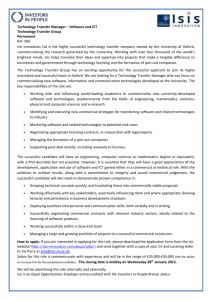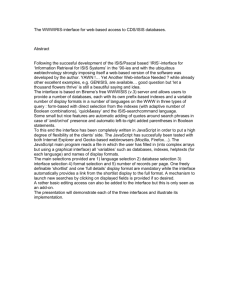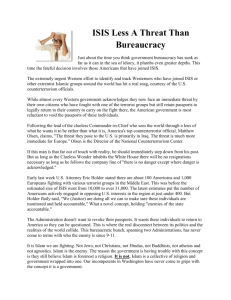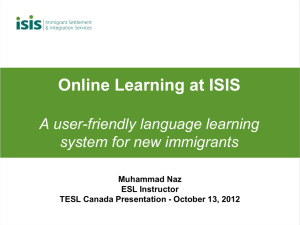BGS Senior Counselor Michael Morell's Written And Oral Statement
advertisement
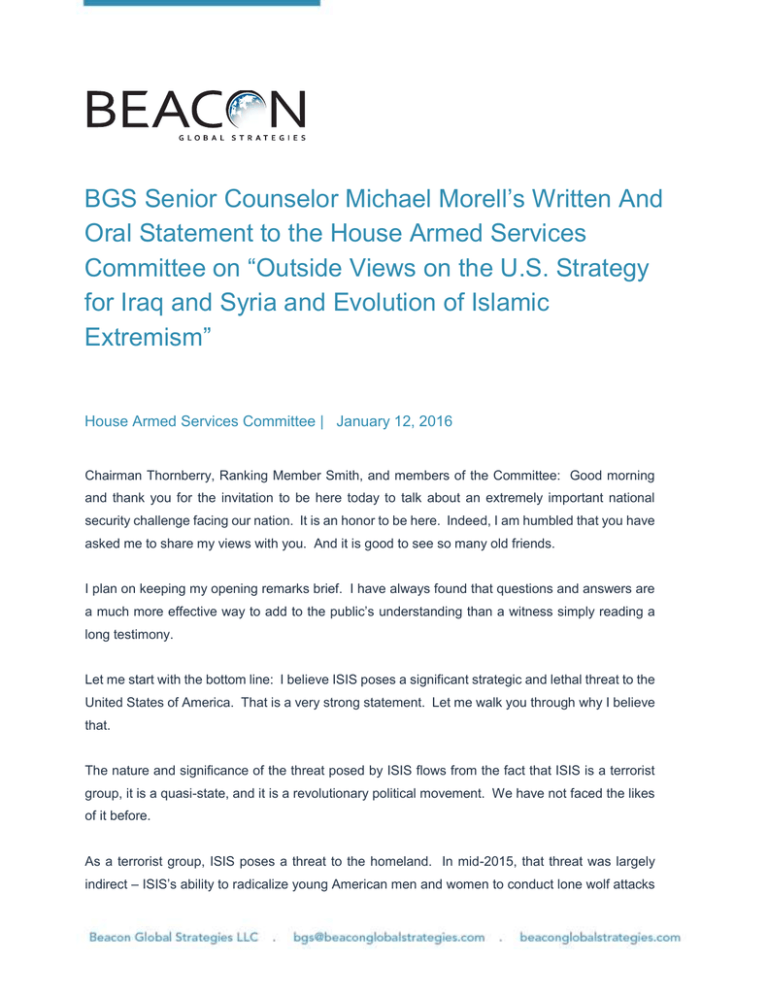
BGS Senior Counselor Michael Morell’s Written And Oral Statement to the House Armed Services Committee on “Outside Views on the U.S. Strategy for Iraq and Syria and Evolution of Islamic Extremism” House Armed Services Committee | January 12, 2016 Chairman Thornberry, Ranking Member Smith, and members of the Committee: Good morning and thank you for the invitation to be here today to talk about an extremely important national security challenge facing our nation. It is an honor to be here. Indeed, I am humbled that you have asked me to share my views with you. And it is good to see so many old friends. I plan on keeping my opening remarks brief. I have always found that questions and answers are a much more effective way to add to the public’s understanding than a witness simply reading a long testimony. Let me start with the bottom line: I believe ISIS poses a significant strategic and lethal threat to the United States of America. That is a very strong statement. Let me walk you through why I believe that. The nature and significance of the threat posed by ISIS flows from the fact that ISIS is a terrorist group, it is a quasi-state, and it is a revolutionary political movement. We have not faced the likes of it before. As a terrorist group, ISIS poses a threat to the homeland. In mid-2015, that threat was largely indirect – ISIS’s ability to radicalize young American men and women to conduct lone wolf attacks here. That indirect threat remains today. There are thousands of ISIS sympathizers in the United States – more than al Qa`ida ever had. The FBI has over 900 open investigations into homegrown extremists – the vast majority radicalized by ISIS and a large number of which relate to individuals who may be plotting attacks here. Such attacks have already occurred in the US, including the attack in San Bernadino last month, which in terms of fatalities was the largest terrorist attack in the United States since 9/11. Other ISIS supporters have been arrested before they could act. Today, we face an additional threat from ISIS – a direct threat – an ISIS capability to plan and direct attacks in the homeland from the group’s safe haven in Iraq and Syria. Just like the group did in Paris in November. This was the largest terrorist attack in Western Europe since the Madrid train bombings in 2004. What is the difference between a direct and indirect threat? A lone wolf attack, while horrific, is likely to produce fairly limited casualties – on the order of the Boston Marathon bombing in 2013 (three killed) or the shootings at Fort Hood in 2009 (12 killed). A directed attack, however, carries the potential to be more complex and sophisticated – multiple simultaneous attacks, for example – and therefore more deadly, again just like in Paris (130 killed), or London in 2005 (56 killed), or even 9/11 itself. The attack in Paris was the first manifestation of an effort that ISIS made to put together an attack capability in Europe – an effort that they began less than a year before. More attacks in Europe are likely. The head of the UK’s domestic security agency has warned that ISIS is planning mass casualty attacks in Britain. ISIS has said that it wants to conduct attacks in the United States. Now that they have an attack capability in Europe, they are almost certainly working to do the same here. And, unless they are degraded, they will succeed. As a quasi-state, ISIS poses a threat to regional stability. ISIS is a state in every respect of the word, except one. It does not have foreign recognition or relations with other states. But it does have an executive, it has an army, it has a police force, it has a set of laws, it has a judiciary, it provides social services, it takes care of the poor, and it raises taxes. Why does it matter that ISIS is a quasi-state? Two reasons. One is that, as a state, it can utilize all the resources – human and otherwise – within the area it controls in the pursuit of its aims. The best example is the tens of millions dollars a month in revenue that ISIS earns from the selling the oil that it controls. And two is that it will make it more difficult to dislodge them. They are every day becoming more deeply rooted in the area they control. The ISIS threat to regional stability is a threat to the very territorial integrity of the current nation states there, a threat to inflame the entire region in sectarian war. All this in a part of the world that still provides almost a third of the world’s oil supply; a region that is home to one of America’s closest allies, Israel; and a region that is home to a set of close American allies – the Gulf Arab states -- that are a bulwark against Iran’s push for regional hegemony. And, as a revolutionary political movement, ISIS is gaining affiliates among extremist groups around the world. They are signing up for what ISIS desires as its objective – a global caliphate where day-to-day life is governed by extreme religious views. In the mind of ISIS, its global caliphate would extend to the US itself. When they join ISIS, these affiliates evolve from focusing on local issues to focusing on establishing an extension of the caliphate themselves. And, their targets evolve from local to international ones. This is the story of the bombing of the Russian airliner by an ISIS group in the Egyptian Sinai—only the third airliner brought down by a bomb in the last 25 years. ISIS has gained affiliates faster than al Qa’ida ever did. From nothing a year ago, there are now militant groups in nearly 20 countries that have sworn allegiance to ISIS. They have conducted attacks that have already killed Americans, and they carry the potential to themselves grab large amounts of territory. Libya is a place that this could happen in the near term. ISIS controls territory in Libya, and foreign fighters are begging to join ISIS there. Degrading and ultimately defeating ISIS will both require removing the leadership from the battlefield and will require the shrinking and eventual elimination of the safehaven, the elimination of the state, currently the size of Great Britain. --The safe haven, the State, is a key part of ISIS narrative that it is winning. This narrative is absolutely critical to radicalizing homegrown extremists here and absolutely critical to creating affiliates among other militant groups. --The safe haven provides security for ISIS to plot and train. There are two things that are necessary for a successful attack on the Homeland – a desire to do so and the capability to attack us. The safe haven allows for the building of that capability. --And, the safe haven provides a place for foreign fighters to gather. No safe haven; no place to gather. Nearly 30,000 individuals from over 100 countries have traveled to Syria and Iraq. Some are homesteading there to help create the caliphate, others will die on the battlefield, but still others will return home – carrying with them the potential to conduct attacks. This has already happened in Europe. This creates the potential for attacks that cause more casualties because the individuals who return home will have battlefield experience. Removing the leadership is easier than eliminating the sahehaven. The former requires good intelligence and the military assets to turn that intelligence into action. The latter requires complex military operations in both Iraq and Syria. And that requires a political solution in Damascus to the problem of Bashar al-Assad and a political solution in Iraq to the problem of the disenfranchisement of the Sunnis. Mr. Chairman, let me close with this. Early last month, during a debate in the British Commons over whether Parliament should authorize British airstrikes against ISIS in Syria, the Labor Party’s shadow minister for Foreign Affairs, Hilary Benn, gave a remarkable speech. Some of his colleagues called it one of the greatest speeches in the history of the British commons. Benn, breaking with his own party leader and supporting British air strikes in Syria, said “We are here faced by fascists – not just their calculated brutality but their belief that they are superior to every single one of us in this Chamber tonight and all the people that we represent. They hold us in contempt. They hold our values in contempt. They hold our belief in tolerance and decency in contempt. They hold our democracy….in contempt. Benn went on. “What we know about fascists is that they need to be defeated….It’s why this entire House stood up against Hitler and Mussolini…. We must now confront this evil.” I associate myself with Hilary Benn’s remarks. Mr. Chairman, that is the picture as I see it -- as a former intelligence officer who spent years watching al Qai’ida and other terrorist groups. I will, of course, be happy to answer any questions. _______________ Disclosures: Per Rule 11, clause 2(g)(5), of the Rules of the U.S. House of Representatives for the 114th Congress: --I am representing myself at this hearing. And, since retiring from the CIA, I have not received any funding from the U.S. government or from a foreign government for any contract or grant. --My curriculum vitae, in the form of a bio, is attached.

